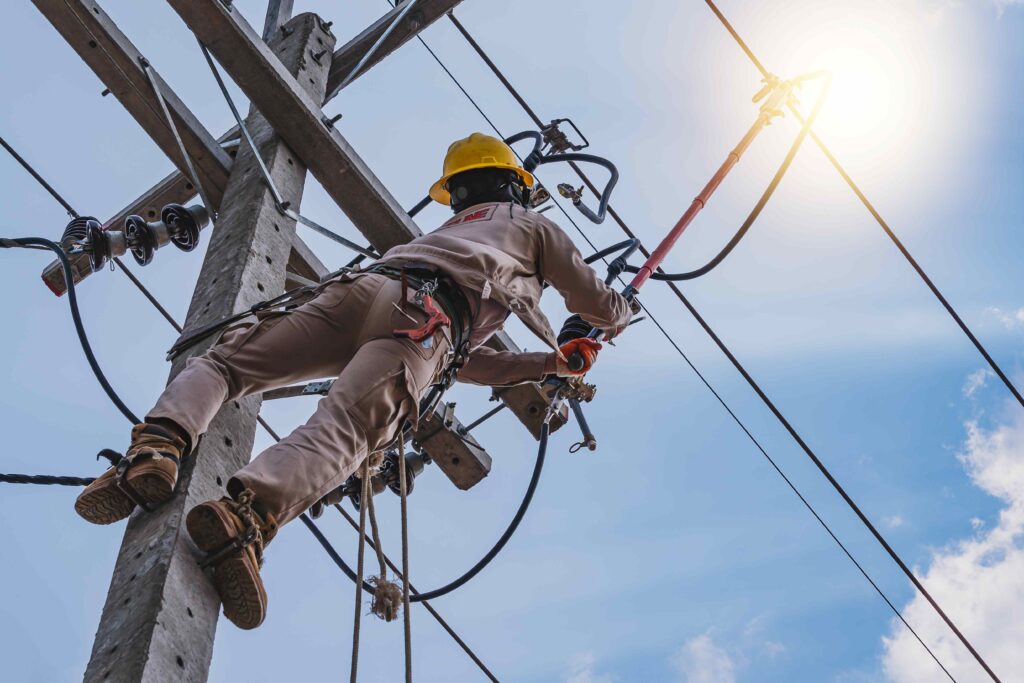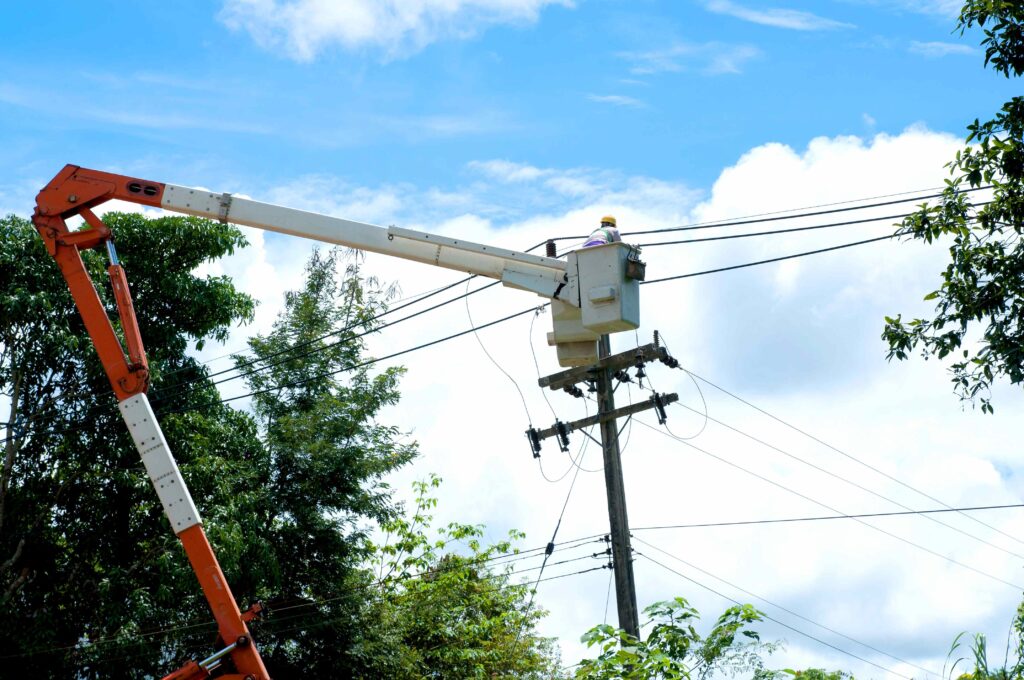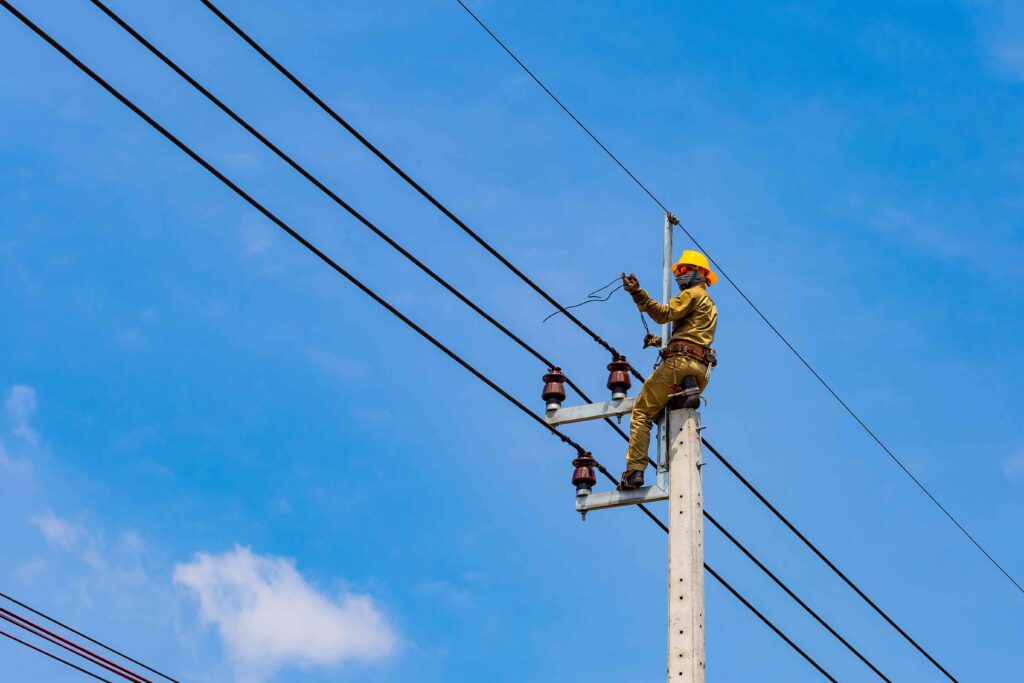Apprentice lineman jobs involve entry-level work in the electrical utility industry. These positions require physical labor and on-the-job training.
Aspiring to become an apprentice lineman propels individuals into a vital role within the electrical power sector. Candidates embark on a path of hands-on experience, dedicated to mastering the installation, maintenance, and repair of electrical power systems. Qualifying for this job typically involves a combination of technical schooling and physical aptitude, as apprentice linemen must navigate both challenging terrains and complex technical tasks.
With safety as a paramount concern, these roles are foundational stepping stones to a rewarding career, offering extensive training under the guidance of seasoned professionals. The role promises a fruitful future for those committed to learning the intricacies of electrical distribution and transmission networks.
Job Description Of Apprentice Lineman
Embarking on a career as an Apprentice Lineman opens a door to the dynamic world of electrical power systems. This job is crucial for keeping energy flowing to homes and businesses. It involves a blend of physical labor, technical learning, and working in challenging environments. Let’s explore what the role entails.
Physical Work
- Physical stamina and strength are essential for climbing poles and lifting equipment.
- Tasks include digging holes and setting poles firmly into the ground.
- Operating heavy machinery like bucket trucks forms part of the daily routine.
Learning Technical Skills
Apprentice Linemen acquire a wide range of skills that are vital to their trade.
- Understanding electrical diagrams and circuitry is crucial for troubleshooting issues.
- Apprentices receive training on various tools, including hot sticks and voltage detectors.
- Knowledge of safety practices and first-aid is imparted to ensure safe operations.
Maintenance Of Power Lines
Maintenance is a core aspect of the lineman’s responsibilities.
- Inspecting lines for wear and tear and performing repairs is routine.
- The role involves replacing outdated or malfunctioning transformers and insulators.
- Crews often work together for tasks like installing new lines or clearing vegetation near power lines.

Working At Heights
Apprentice Linemen spend much of their time above the ground.
- Comfort with heights is a must as many tasks are performed atop utility poles.
- Proper use of safety harnesses and belts is a critical part of training.
- Working on elevated platforms sometimes requires strong focus and balance.
Qualifications Required For Apprentice Lineman
Landing an apprentice lineman job starts with meeting key qualifications. These set the foundation for a successful career working with electrical power networks. Below we outline the must-have credentials for this role.
Educational Qualifications
An apprentice lineman needs a foundational education. A high school diploma or GED is typically required. Vocational training in electrical systems is a plus.
- High school diploma or GED
- Vocational training or courses in electrical systems (preferred)
Physical Fitness
Physical readiness is non-negotiable. Candidates must pass a physical exam to confirm they can handle the job’s demands.
| Physical Requirements | Details |
|---|---|
| Strength | Lift, pull, and carry heavy equipment |
| Stamina | Work for extended periods in various conditions |
| Flexibility | Climb and bend comfortably |
Class A Commercial Driver’s License
Driving large utility trucks is part of the job. A Class A CDL is often a requirement before or soon after getting hired.
Ability To Follow Instructions
Clear communication and following directions are critical to safety and efficiency on the job.
- Understand and implement written and verbal instructions
- Work collaboratively with a team
Benefits Of Being An Apprentice Lineman
Becoming an apprentice lineman can ignite a powerful career. It is a path filled with various advantages. Those stepping into this field can look forward to numerous rewards that include training, financial stability, and secure employment options. Here are the standout benefits that make the position especially attractive:
Opportunity For Career Growth
Embarking on a lineman apprenticeship opens doors to vast career advancement. As apprentices master their craft, they can rise to become journeyman linemen, and with time, possibly crew leaders or supervisors.
- Step-by-step advancement
- Training to enhance skills
- Path to leadership roles
Good Salary And Benefits
Financial rewards are significant in this trade. Apprentice linemen earn competitive wages. They also enjoy benefits like health insurance, retirement plans, and potentially, overtime pay.
| Compensation Component | Benefit |
|---|---|
| Base Salary | Competitive wages |
| Health Insurance | Coverage for medical needs |
| Retirement Plans | Security for future |
Hands-on Technical Experience
Apprentice linemen gain practical skills on the job. They learn how to handle complex electrical systems. Real-world scenarios build their problem-solving abilities.
- Technical skill development
- Valuable field experience
- Problem-solving training
Job Security
The demand for skilled linemen is steady. Those with the proper training are unlikely to face job shortages. This makes for a reliable career with long-term prospects.
- Stable industry demand
- Less risk of unemployment
- Long-term employment potential.
Challenges Faced By Apprentice Lineman
Becoming an apprentice lineman is a bold step towards a rewarding career. On this journey, new trainees encounter various challenges. Daily tasks range from braving the elements to ensuring safety despite the inherent risks. Let’s delve into the trials faced by apprentice linemen.
Working In Extreme Conditions
Apprentice linemen must weather the storm, quite literally. They work outdoors, regardless of the climate. Summer’s scorching heat and winter’s biting cold test their endurance. This career is not for the faint-hearted, as extreme conditions demand physical and mental toughness.
Job Hazards
- Risk of electrical shocks: Contact with live wires is a looming threat.
- Falls from heights: Working on poles and towers comes with a fall risk.
- Physical injuries: Heavy lifting and manual labor can cause strains or sprains.
Safety training is crucial, but risks remain in this hands-on role.
Long Working Hours
Apprentices often face overtime to complete pressing jobs. Restoring power after storms or urgent repairs can mean extended hours on the job. Balancing work with life’s demands becomes a test of time management and dedication.
Stressful Work Environment
The responsibility of maintaining power lines is weighty. Apprentice linemen must stay alert to avoid errors that can lead to outages or harm. High stress is part of the daily grind, demanding sharp focus and a cool head under pressure.
Training For Apprentice Lineman
Embarking on an apprentice lineman journey equips you with vital skills for a successful career in the electrical trade. A well-rounded training regimen forms the core foundation of an apprentice lineman’s skill set. This training splits across several key areas, ensuring a comprehensive understanding of both theoretical knowledge and practical expertise.
Classroom Instruction
Underpinning practical skills with theoretical knowledge is crucial.
- Electrical theory
- Circuitry and wiring protocols
- Blueprint reading and interpretation
- OSHA regulations
- First aid and CPR certification
Apprentices attend classes to grasp the essentials of electrical systems and safety procedures. Trainers use multimedia, textbooks, and real-life scenarios to teach these concepts.
On-the-job Training
Real-world experience is invaluable.
Trainees complete various tasks under close supervision, gaining hands-on experience with:
- Power line installation and maintenance
- Transformer setup
- Operation of electrical equipment
Seasoned linemen mentor apprentices, providing guidance and feedback throughout diverse fieldwork experiences.
Safety Training
Safety remains a top priority for apprentice linemen.
Comprehensive training modules cover:
- Personal protective equipment (PPE)
- Fall protection systems
- Electrical hazard awareness
- Emergency response protocols
Emphasis is placed on cultivating a culture of safety to prevent workplace accidents and injuries.
Technical Training
Apprentices must master specific technical skills to thrive in their careers.
| Technical Skill | Description |
|---|---|
| Splicing | Joining wires and cables effectively |
| Terminations | Securely connecting lines to equipment |
| Testing and Troubleshooting | Identifying and resolving electrical issues |
Technical proficiency ensures apprentices can handle complex tasks reliably and safely, laying the groundwork for advanced roles in the field.

Tips For Succeeding As An Apprentice Lineman
Embarking on a career as an Apprentice Lineman is thrilling and demanding. Success requires dedication, skill, and a proactive mindset. Here are essential tips for thriving in this role.
Be Punctual
Time management is crucial in the utility industry. Always arriving on time demonstrates reliability. It earns trust from supervisors and peers.
- Plan ahead: Know your route and start early.
- Be prepared: Pack your gear the night before.
- Stay organized: Keep a schedule to manage duties efficiently.
Be Willing To Learn
An Apprentice Lineman must absorb large amounts of new information. Stay open and curious.
- Ask questions: Show eagerness to understand processes fully.
- Seek feedback: Use constructive criticism to improve.
- Embrace challenges: Learning opportunities often come from difficult tasks.
Develop Good Work Habits
Strong work habits are the backbone of a lineman’s career. They ensure safety and efficiency. Set daily goals to stay on track.
- Practice safety: Always prioritize safe practices.
- Maintain tools: Keep equipment in top condition.
- Communicate: Clear communication prevents errors.
Stay Focused And Motivated
Focus and motivation are key to completing an apprenticeship. They inspire you to tackle challenges confidently.
- Set personal goals: Aim for milestones in skills and knowledge.
- Stay positive: A positive attitude helps during tough days.
- Take breaks: Rest to maintain peak mental attention.
Job Outlook For Apprentice Lineman
The energy sector consistently requires fresh talent to maintain its essential services. An apprentice lineman position not only offers a foothold in this vital industry but promises a career with durability and growth.
Growing Demand For Skilled Workers
The need for skilled linemen is on the rise. Factors like an ageing workforce, the expansion of energy infrastructure, and the advent of renewable energy sources contribute to this growing demand. As such, apprentice linemen find themselves stepping into a field ripe with opportunity.
Career Advancement Opportunities
- Promotions: Starting as an apprentice, workers can climb the ranks to journeyman and master lineman.
- Specializations: Opportunities exist to specialize in areas like transmission or distribution.
- Leadership roles: With experience, some advance to supervisory or management positions.
Maintaining Professional Standards
Apprentice linemen uphold the safety and reliability of power delivery. Comprehensive training and certification ensure high standards are met, which is essential for successful career longevity.
Keeping Up With Technological Advances
- New Tools: Linemen must master the latest tools and equipment to work efficiently.
- Smart Grids: Understanding smart grid technology will become increasingly important.
- Innovations: Continuous learning is required to adapt to new industry innovations.
Frequently Asked Questions For Apprentice Lineman Jobs Position
What Does A Lineman Apprentice Do?
A lineman apprentice assists in building and maintaining electrical power systems. They learn to install poles and conductors, perform equipment maintenance, and adhere to safety protocols under supervision.
Where Do Apprentice Lineman Make The Most Money?
Apprentice linemen often earn the highest salaries in states like California, Alaska, and New York, due to higher living costs and strong labor unions.
How Much Do Entry Level Apprentice Lineman Make In Texas?
Entry level apprentice linemen in Texas typically make between $30,000 to $40,000 a year. Salary varies based on company and region.
What Is The Job Title Of A Lineman?
The job title for a lineman is an “Electrical Lineman” or simply “Lineman. ” They specialize in installing and maintaining electrical power and telecommunications lines.
Conclusion
Embarking on an apprentice lineman journey promises a future of growth and skill acquisition. This trade offers a clear path for those with dedication and a penchant for hands-on work. As you consider this rewarding career, remember the demand for skilled workers in this field is on the rise.
Embrace the challenge, and you may find yourself at the forefront of a fulfilling profession.

